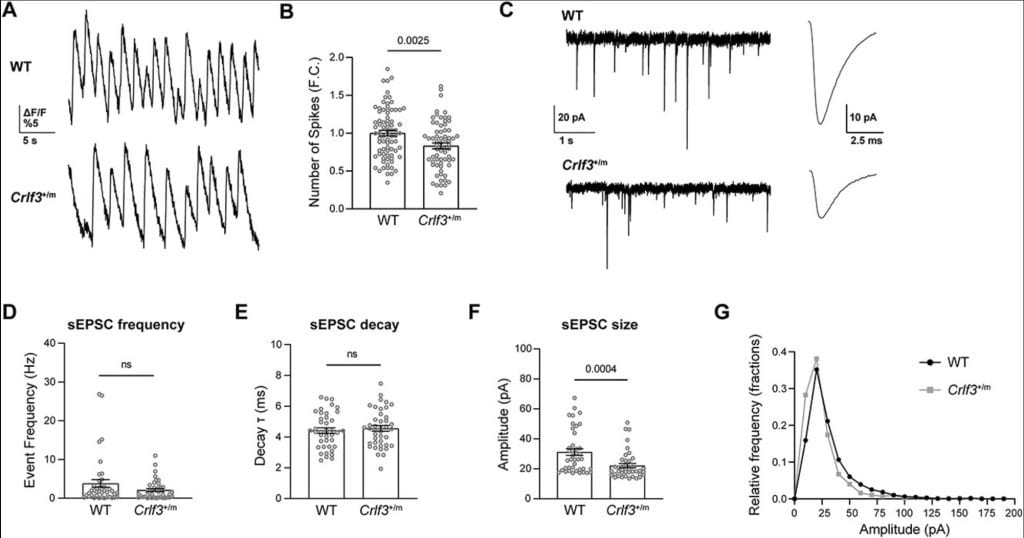Children with Neurofibromatosis type 1 (NF1) are prone to intellectual and developmental disabilities, including learning and memory problems, attention deficit, autism, and developmental delays. Prior work from the laboratory of Dr. David Gutmann, Washington University NF Center Director, showed that mini-brains from children with NF1 total gene deletions have impaired nerve cell (neuron) development, particularly in the formation of particular neuron structures called dendrites. Leveraging cellular engineering approaches, they discovered that this abnormality was caused by loss of expression of a single gene called CRLF3. Moreover, they described that children with NF1 who have a specific mutation (Leu389Pro) in the CRLF3 gene have higher autism burden.
In their new study, a team led by Dr. Corina Anastasaki, Assistant Professor in Neurology, showed that mice and human mini-brains with this mutation have defects in brain development, shorter neuron dendrites, and a reduced ability to conduct electrical signals. Since this mutation is found in 15% of the general population, their findings suggest that CRLF3 might be a genetic modifier that contributes to intellectual and developmental disabilities.
This work was published in Human Molecular Genetics. https://pubmed.ncbi.nlm.nih.gov/37712888/
